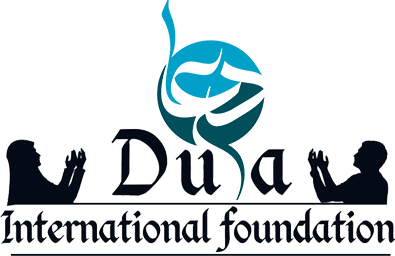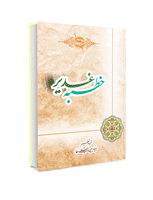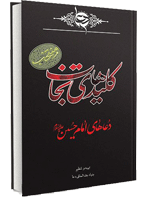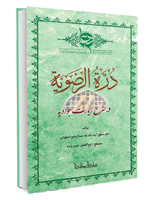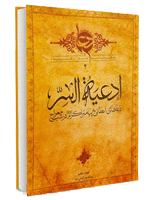- Prophet Muhammad (P.B.U.H): Whenever one of you is needy and brings that to other people, he will not be satisfied. and Whenever someone is needy and brings that to Lord, he shall give him what he wants. sooner or later.
- Imam Sadiq (As.): Whenever you had tenderness in your heart, Pray. because your heart doesn't get tender unless it's pure.
- I told to Imam Baqir (A.S): “What is the meaning of “truly, Ibrahim was awwah and patient”? He replied: “Awwah means (the one who is) praying (to) and wailing (for God) a lot.””
- “Two people, who have acted alike, enter the heaven, but one of them sees the other one in a higher place. Then, he says: O’ Lord! How come has he a superior place in comparison to me while we acted alike? God the Almighty replies: “because he asked Me (whatever he needed) and you did not do that”.
- “The most knowledgeable person to God is the one who asks more from Him”
- “Whoever prays a lot, the angels say: this voice is familiar (to us) and this is the prayer which is accepted and this is the need which is provided”
- “There is no servant who goes to a land and opens their hands and praises God and prays, unless God fills the land with his rewards, whether it is vast or tiny”
- If you knew god the way you should’ve known, Mountains definitely will be moved by your prayers.
- Crying out of fear of god is the key to his mercy, it’s a sign for his acceptance and it’s a door to answering (your prayers)
- Pray to god and believe in his answeres. But understand that god wont accept prays from an unwitting oblivious heart.
Moral education based on the supplications of Imam Sajjad (PBUH)
بسم الله الرّحمن الرّحیم
Moral education based on the supplications of Imam Sajjad (PBUH)
Author (s): Saeed Beheshti, Parichehr Davoudi
Translator: AbdolQhadir Mojahid Ghaznavi
Summary
The ray of education passing through multi-dimensional prism of human existence is experienced in various spectrums, such as moral, social, political, intellectual, physical, emotional, religious and cultural education. This research examines its moral education spectrum. Morality which blocks the way to the great predicaments and corruption. The main issue in this essay is extracting a point of view of the moral observer from the supplication of Makarim al-Akhlaq (Noble moral traits). According to this research, moral education has an absolutist approach and a divine origin, including knowledge of God, knowledge of moral virtues and vices. The basis of moral education is also amour-propre (Ezzat-Nafs: Honoring the Human Self/Soul). In all parts of this supplication, the human soul is respected and all the moral dimensions in this supplication are about preserving the human dignity and honor. The domain of moral education is not limited to individual behaviors that are effective only in private, but in addition to correcting individual behaviors such as speech and actions, etc., this enlightening supplication, also refers to all rights in collective relations (social ethics) and it also manifests itself in relation to God (divine morality) and according to this supplication, any normal action can be turned into a moral action based on the intention of that action.
Keywords: Education, Morality, Moral education, The Supplication of Noble Moral Traits, Imam Sajjad (PBUH).
The reason for choosing such a topic in the field of Islamic education was that, unfortunately, most of our educational foundations are based on the West, and the high place of religion in human education has been forgotten, and due to this reason, the rich religious resources that are compiled and written for moral education and personality development of human being is not examined and studied scientifically, and most of the experts in the field of education prepare and organize their works based on the scientific and classified findings of western universities. Our basic criticism of the western system is this that they present their scientific opinions on the level of providing material needs and nurturing aspects of human intelligence and talent. Therefore, a person who is educated in such an educational system is limited to a one-dimensional personality, while his spiritual needs are neglected and finally, after going through various stages of education and training, he faces with an internal void considering himself a fruitless being in doubt of the findings of religions as they cannot be examined objectively and empirically. Since we have copied our educational system from the West, unconsciously are being involved in such a process while we are unaware of its destructive consequences.
Necessity of moral education:
Amongst types of education, moral education has a distinct position. Regarding the importance of moral education, it is enough that the Prophet (PBUH&HF) considers the perfection of morality as one of the goals of His mission, and by this means he emphasizes the vital value and importance of this matter in human life and Islamic society in the following statement:
إِنَّمَا بُعِثْتُ لِأُتَمِّمَ مَكَارِمَ الْأَخْلَاق
“I have only been sent to perfect the noble moral traits.”
The importance of Makarem Akhlaq supplication
Occasionally there are views that may not have been the outcome of a deep scientific research, but in terms of the richness and maturity of thought and fundamental points, they have taken steps far beyond the new theories. The exalted Islamic thought being connected to the infinite sea of divine revelation is amongst the richest of such thoughts. Definitely, what is left from the Infallible Imams (PBUT) are the irreplaceable charters of human relations. The supplication of Noble Moral Traits is a humanizing instruction.
In the following, the key words of the research, including morality, education and moral education, are described:
Morality: Allamah Tabatabaei said: “Akhlaq (morality) is the plural form of kholq (manner) and kholq is a form of perception that is placed inside a human and at any appropriate time, it manifests inside him and motivates him towards a will which ends into action. In other words, manner (kholq) means the psychological crystallization (Malakah Nafsani), which in case bodily actions are required, can be easily acted upon, whether the actions are virtues or vices.”[1]
Education: Education is considered to be nurturing and actualizing all talents and creating interaction and coordination between them, so that in this way the student can reach the highest level of perfection.[2]
Moral education
Moral education deals with the development of internal talents to stabilize moral traits and achieve moral virtues and eliminate moral vices. “The objective of moral education is to create the necessary background for self-cognizance in order to know God and to know, nurture and guide the talents of individuals in order to improve both the individuals and the society.”[3]
Definition of moral education
Moral education consists of knowing the attributes of God, the Almighty and trying to acquire moral virtues and avoid moral vices in order to achieve God's satisfaction. Therefore, in moral education, while knowing the divine attributes, a person tries to manifest them in his own life. For example, by knowing God's justice, he tries to be a just person.
The ultimate goal of moral education from the point of view of Islam and the Infallible Imams (peace be upon them) is to obtain God's pleasure, and in pursuit of this objective, a man should perform moral actions. On the other hand, in other schools, the happiness and joy of this world or Hereafter is considered the ultimate goal. According to Makarim al-Akhlaq supplication, the person who has acquired the moral virtues is possessing moral education and does everything because of the satisfaction of God's Holy Essence, not because of fear of hell or greed for heaven.
Dignity; The basis of moral education in Makarim al-Akhlaq Supplication.
"Dignity is nobility, and nobility is the result of a certain productivity of a being, without comparing it with others, which if being compared, then, it is called virtue, not dignity."[4]
Imam Sajjad (PBUH) in a phrase of the supplication says:
“(O God…) Grant me the highest moral traits and protect me from vainglory!”
God the All-High gave the believing servant the free-will of being able to do everything, but He did not give him the right to humiliate and devalue himself, and He says that honor belongs to God, His Messenger, and the believers.
The domain of moral training in the supplication of Makarim al-Akhlaq
Discussing ethics, human-centered optional actions are the main and basic topic. These behaviors according to the relationship in which they are performed, can be divided into three general categories:
- Divine ethics: The deeds that humans perform in relation to God.
- Individual ethics: Behaviors that are originally related to man himself.
- Social ethics: Things that humans do in relation to others.
The supplication of Imam Sajjad (PBUH) covers all the three categories.
Divine ethics
Faith and certainty: Leading psychological traits.
In the first phrases of the supplication, Imam Sajjad (PBUH) supplicates as follows:
اللَّهُمَّ صَلِّ عَلَی مُحَمَّدٍ وَ آلِهِ، وَ بَلِّغْ بِإِیمَانِی أَکمَلَ الْإِیمَانِ، وَ اجْعَلْ یقِینِی أَفْضَلَ الْیقِینِ، وَ انْتَهِ بِنِیتِی إِلَی أَحْسَنِ النِّیاتِ
“0 Allah, bless Mohammad and his Household, and cause my faith to reach the most perfect faith, and make my certainty the most excellent certainty and take my intention to the best of intensions and my works to the best of works!”
His Holiness demands for the perfect, the highest and the best certainty, knowledge, love and faith, which can change our evils, whether they are hereditary or caused by any other reason.
Intention
The intention expresses a true relationship, not a contract, that is, it is the intention which has a formative relationship with the action and gives it existence, and if there is no intention or right intention for the action, it will not cause perfection to the soul. Therefore, regarding the intention, Imam Sajjad (PBUH) says:
اللَّهُمَّ وَفِّرْ بِلُطْفِک نِیتِی، وَ صَحِّحْ بِمَا عِنْدَک یقِینِی، وَ اسْتَصْلِحْ بِقُدْرَتِک مَا فَسَدَ مِنِّی.
“O Allah, complete/increase my intention through Thy gentleness, rectify my certainty through what is with You, and set right what is corrupt in me through Your power!”
Therefore, in order to worship God while being higher than the level of general and common motivations, people should obtain a proper level of knowledge and love of God.
God's love and friendship creates an affection and attraction towards God in man, which motivates him to worship, that is, perform deeds which please God.
Individual ethics
Human being personally and individually is the owner of morality which is unique to him and he achieves it by purification of his soul. The first issue raised in relation to personal ethics is the issue of awakening versus negligence.
Thus, Imam Sajjad (PBUH) says:
اللَّهُمَّ صَلِّ عَلَی مُحَمَّدٍ وَ آلِهِ، وَ نَبِّهْنِی لِذِکرِک فِی أَوْقَاتِ الْغَفْلَةِ
“O Allah, bless Mohammad and his Household, incite me to remember Thee in times of heedlessness.”
Because negligence is a hindrance to refining the soul and awakening is a vital requirement for it.
The second issue is the desire for self-improvement
Social ethics
In the aforementioned phrases, Imam Sajjad (PBUH) requests from God to grant Him what he needs for divine and individual ethics and manners. In the following phrases, you read of his request which is related to social ethics. Therefore, he supplicates:
اللَّهُمَّ وَ أَنْطِقْنِی بِالْهُدَی، وَ أَلْهِمْنِی التَّقْوَی، وَ وَفِّقْنِی لِلَّتِی هِی أَزْکی، وَ اسْتَعْمِلْنِی بِمَا هُوَ أَرْضَی.
“O Allah, make my speech be guidance, inspire me with reverential fear, give me success in that which is most pure, and employ me in what is most pleasing to You!”
As you see, in these phrases, the core of his requests is aimed with regard to how he wants to manifest himself in the society. After obtaining the divine and individual ethics and their result, now, he wants to share them with the people other than himself, to give them guidance and help towards perfection which he has gained.
Now that guidance has reached others, the guided and perfect person develops so much in socializing that he lacks time to help others. On the other hand, when the perfect man manifests himself in society to help and guide others towards perfection, then the quarrels and arguments, animosity and betrayals, acceptance and denials start to show themselves in such a way which that phase of the perfect and guided man can be considered as the most difficult of all his life phases. Therefore, Imam Sajjad (PBUH) asks Allah the Almighty to support him in many fields with regard to social guidance and ethics.
Conclusion
Some people think that ethics, asceticism, and dependence hinder growth and development, and they consider asceticism to be as neglecting and leaving the worldly life, whereas knowledge and love transforms a person and creates a desire in the believer to work despite all the debilities and lack of facilities and asceticism gives him an opportunity not to think about himself only and does not become the victim of the machinery atrocities that are seen in our world today. It is with a spiritual education program in a spiritual society that in such current age of post-modern and post-cognition, can transform fear into power, avarice into forgiveness and hypocrisy into monotheism, and human beings can be freed from fruitless eyes and useless tongues.
Man, who is the subject of education and morality, from the point of view of Islam and divine schools, has two dimensions; physical and spiritual, each of which has the ability to be educated. From the time of fertilization to adulthood, a human being grows both in the physical and spiritual dimension, such as his feelings, emotions, thoughts, intellect, faith, and morals. And it is spiritual education that forms his personality and carries moral values.
Islamic education includes all dimensions of human existence including the material, spiritual, intellectual, emotional, moral, mystical, individual and social fields, and morality is a spiritual or psychological crystallization which from the point of view of Islam relies on faith, worship and submission to the creator of the world, and therefore, its essence is no more than one fact, but it has different manifestations in objectivity and practice, and can be considered in every human relationship.
The moral education of Makarim al-Akhlaq supplication considers an ultimate goal for humans, and that is to approach God. The meaning of rapprochement (Taqarrub) is that a person tears away the veils and reaches such a degree that he is close and connected to the origin of existence, so that he does not consider himself independent and sees everyone as belonging and related to Him. In order to reach this ultimate goal, first of all, one should pay attention to the specific goal of moral education, which is the perfection of man and obtaining spiritual perfection, and according to his nature, which is a perfectionist, if not being neglectful, will step on this path and his happiness will be guaranteed.
In Makarim al-Akhlaq supplication, the path for obtaining such a human perfection is paved and the necessary instructions are granted for those who seek guidance and perfection. At the end, we just mention some of the issues related to moral traits which this supplication includes:
The method of creating a favorable educational environment, the method of providing life needs, the method of honoring a person, the method of inviting to moral values, the method of educating intellectual power, the method of assiduity in action (ascesis), the method of self-monitoring method (self-observation and self-accounting), the method of supplicating for obtaining certainty, the method of acquiring faith, the method of worshipping, the method of asceticism, the method of dhikr (remembrance, recitation), and the method of supplicating. A reader and seeker of perfection in the fields of morality, human perfection, infinite triumph, can go through the phrases of the supplication of Imam Sajjad (PBUH) and learn the methods, utilize them in his relations to God, to himself, and to the society in order to obtain the ultimate goal which every individual human is created for. From this essay, we also conclude that the supplications of the Infallibles (PBUT) are not only for the benefits they personally requested, but also the exalted teachings and instructions left for humans, so that by referring to them, and applying the instructions given, can obtain a successful life of the worldly existence and in the hereafter. At the end, for further pondering upon the statements, we quote some of the phrases of the supplication of Makarim al-Akhlaq:
اللَّهُمَّ صَلِّ عَلَی مُحَمَّدٍ وَ آلِهِ، وَ ارْزُقْنِی صِحَّةً فِی عِبَادَةٍ، وَ فَرَاغاً فِی زَهَادَةٍ، وَ عِلْماً فِی اسْتِعْمَالٍ، وَ وَرَعاً فِی إِجْمَالٍ.
“O God (Allah), bless Muhammad and his Household, and provide me with soundness in worship, detachment in renunciation, knowledge put into action, and abstinence in measure!”
اللَّهُمَّ اخْتِمْ بِعَفْوِک أَجَلِی، وَ حَقِّقْ فِی رَجَاءِ رَحْمَتِک أَمَلِی، وَ سَهِّلْ إِلَی بُلُوغِ رِضَاک سُبُلِی، وَ حَسِّنْ فِی جَمِیعِ أَحْوَالِی عَمَلِی.
“0 God (Allah), seal my term with Thy pardon, verify my expectation in hoping for Thy mercy, smooth my paths to reach Thy good pleasure, and make my works good in all my state”
اللَّهُمَّ صَلِّ عَلَی مُحَمَّدٍ وَ آلِهِ، وَ نَبِّهْنِی لِذِکرِک فِی أَوْقَاتِ الْغَفْلَةِ، وَ اسْتَعْمِلْنِی بِطَاعَتِک فِی أَیامِ الْمُهْلَةِ، وَ انْهَجْ لِی إِلَی مَحَبَّتِک سَبِیلًا سَهْلَةً، أَکمِلْ لِی بِهَا خَیرَ الدُّنْیا وَ الْآخِرَةِ.
“O God (Allah), bless Mohammad and his Household, incite me to remember Thee in times of heedlessness. employ me in Thy obedience in days of disregard, open a smooth road for me to Thy love, and complete for me thereby the good of this world and the next!”
[1] An introduction to moral philosophy from the point of view of contemporary Iranian Muslim thinkers Omid Masoud.
[2] Training and Education in Islam, Author, Murtaza Mutahari.
[3] Educational Psychology, by Ali Akbar Saif.
[4] A new look at Islamic education, Khisro Baqeri.
